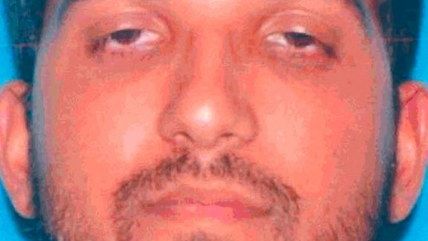Media Outlets Sue for Details on San Bernardino Terrorist IPhone Hack
FBI refuses to publicly reveal security vulnerability.


Does the American public have the right to know how the FBI hacked into an iPhone being used by San Bernardino terrorist Syed Farook? Or maybe put it a different way: Does the American public have the right to know when the federal government uncovers a security vulnerability that makes it possible to hack into their tech devices?
Those questions are at the heart of a Freedom of Information Act (FOIA) lawsuit by several media companies filed today against the Justice Department.
Previously, the Department of Justice got significant public attention trying to force Apple via court order to assist them in breaking into Farook's phone to find out if there was any evidence connected with his deadly mass shooting in San Bernardino or potentially other planned attacks. Apple resisted the court order, warning that such a move had the potential to weaken the security of its phones.
As a court confrontation reached its climax, the FBI backed down. The FBI was able to figure out a way, through an independent party, how to break into the phone. Now the question is whether the FBI can legally conceal that information and the vulnerability they exploited from the public. The Associated Press, Vice, and Gannett are teaming up for a lawsuit. From TechCrunch:
The news organizations involved in the lawsuit argue that the vulnerability is of considerable public interest and should be disclosed and that [FBI Director James] Comey's own comments reflect that.
"Moreover, the FBI's purchase of the technology — and its subsequent verification that it had successfully obtained the data it was seeking thanks to that technology — confirmed that a serious undisclosed security vulnerability existed (and likely still exists) in one of the most popular consumer products in the world," the lawsuit states, adding that "there is no lawful basis" for information about the purchase to be kept secret.
White House spokesperson Josh Earnest told USA Today, "I am confident that the Obama administration will comply with the law," and that the administration has "tried to be as transparent as possible" about the situation. "Given the sensitive nature of the information, we've been quite limited in what we can discuss openly," Earnest added. Apple has not commented on the lawsuit.
The conflict highlights the government's tendency to prize the ability to break into devices and computers in order to engage in surveillance over the citizens' right to privacy, even though such a mindset could result in Americans' data and communications being more vulnerable to hackers and intruders. Andrea Castillo wrote about the problems with such an attitude here.


Show Comments (11)